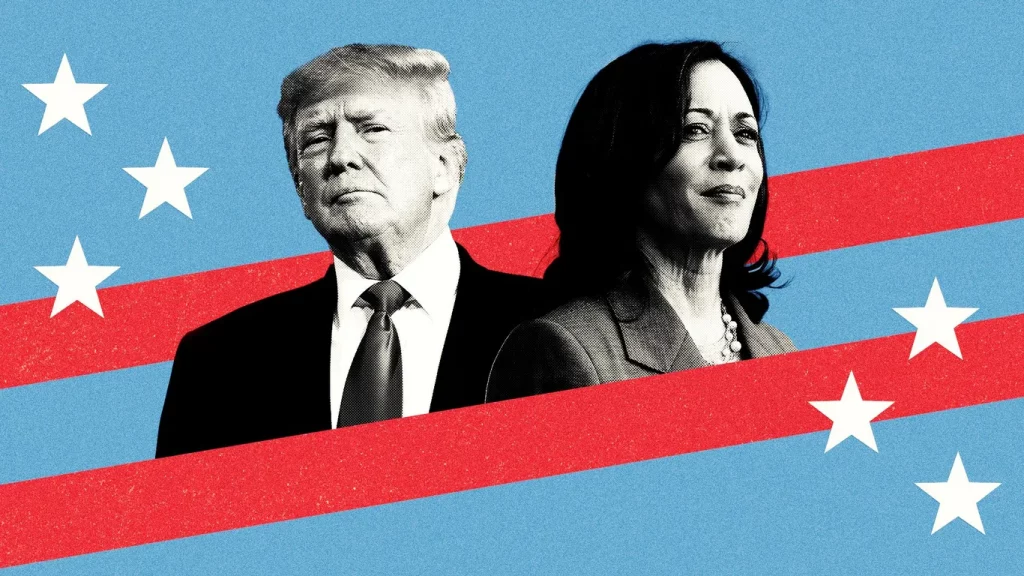Global Economic Consequences of the 2024 U.S. Presidential Election

With the United States being the leading economic power that it is, the outcome of the presidential election affects not only the U.S. economy, but the global economy as well. The U.S. makes up more than 20% of the world’s total income, has the largest national economy, and is one of the lead global traders. The president’s role in implementing tax plans and tariffs therefore matters significant not only to Americans, but the rest of the world as well. The 2024 presidential election leaves the world with two potential economic outcomes: a reversion to Trump’s 2016-2020 economy or a similar and slightly improved economy from Biden’s presidency now under Kamala Harris.
There are plenty of statistics to show why a second Trump presidency would be detrimental to the world economy. The best proof of this is revisiting the world economy in 2016 when Trump was first elected president. Trump is well known for saying the economy was a great success during his presidency prior to the pandemic, however, his booming economy started when former President Barack Obama left with the economy at an all-time high. Many of Trump’s tax and tariff implementations have had negative impacts that Americans have been slowly suffering from since he left office. Trade was a large point of contention for Donald Trump as he started a “trade war” with China. Tariffs are paid by American consumers and businesses, not by foreigners. In addition to harming China by decreasing demand for more Chinese goods, the tariffs also harm American companies who pay them, American consumers who purchase the more expensive goods, American farmers who face reciprocal tariffs, and the economy as a whole. Ironically, this set of policies harms the U.S. economy more than any other economy in the world, despite Trump’s rhetoric about “making the foreigners pay.” As a result, the U.S.’s national income, employment, and inflation are all lower than they would be otherwise.
Foreign nations occasionally gain from the stream of cash from the U.S. Donald Trump is nothing if not consistent. His policies and ideals during the 2024 election have not strayed very far from what they were in 2016. He has made it clear he will implement more tariffs. He has suggested a 10%, or possibly 20%, universal tariff with at least 60% for China. The American people are the unfortunate ones who will pay for this policy. In addition to U.S.-based companies importing machinery and raw materials for their products, many of the goods purchased by American families are imported. Trump’s tariffs on a number of countries are expected to be met with retaliation, which will make it more difficult for U.S. exporters. While there isn’t a former presidency to compare Vice President Kamala Harris’s plans to, current President Joe Biden’s policies are likely a good reflection of what a Harris presidency would mean for the global economy. Democratic policies that prioritize government control and involvement may burden businesses and impede economic progress, whereas Republican policies that emphasize deregulation and free-market capitalism may cause market instability and wealth inequality. History shows us the best strategies frequently arise when the economic philosophies of the two sides are balanced, fusing market dynamism with careful regulation of banking, trade, and commerce.
Article Written by Emery Baun
Sources:
Scott Horsley, Fact Check: Who Gets Credit For The Booming U.S. Economy?, NPR (Sept. 12, 2018), available at https://www.npr.org/2018/09/12/646708799/fact-check-who-gets-credit-for-the-booming-u-s-economy (last visited Oct. 18, 2024).
Don Beyer, Did Trump Create or Inherit the Strong Economy?, JOINT ECONOMIC COMMITTEE, available at https://www.jec.senate.gov/public/_cache/files/2c298bda-8aee-4923-84a3-95a54f7f6e6f/did-trump-create-or-inherit-the-strong-economy.pdf (last visited Oct. 18, 2024).
Warwick McKibbin, Megan Hogan, and Marcus Noland, The International Economic Implications of a Second Trump Presidency, PIERSON INST. FOR INT’L ECON. (Sept. 2024), available at https://www.piie.com/sites/default/files/2024-09/wp24-20.pdf (last visited Oct. 18, 2024).
Office of the U.S. Trade Representative, Economy & Trade, https://ustr.gov/issue-areas/economy-trade (last visited Oct. 18, 2024).
John Hawkins, What would a second Trump presidency mean for the global economy?, THE CONVERSATION (Sept. 15, 2024), available at https://theconversation.com/what-would-a-second-trump-presidency-mean-for-the-global-economy-239069 (last visited Oct. 18, 2024).
You May Also Like
